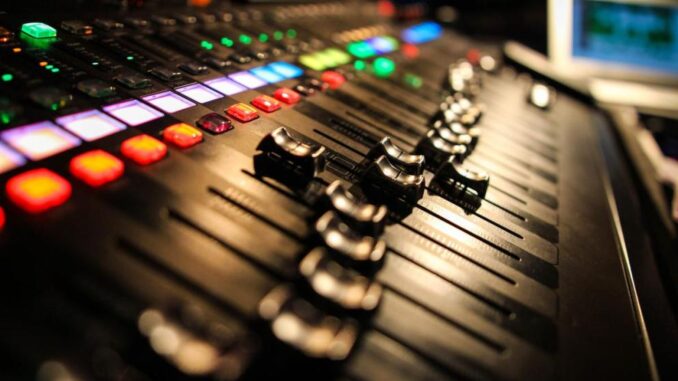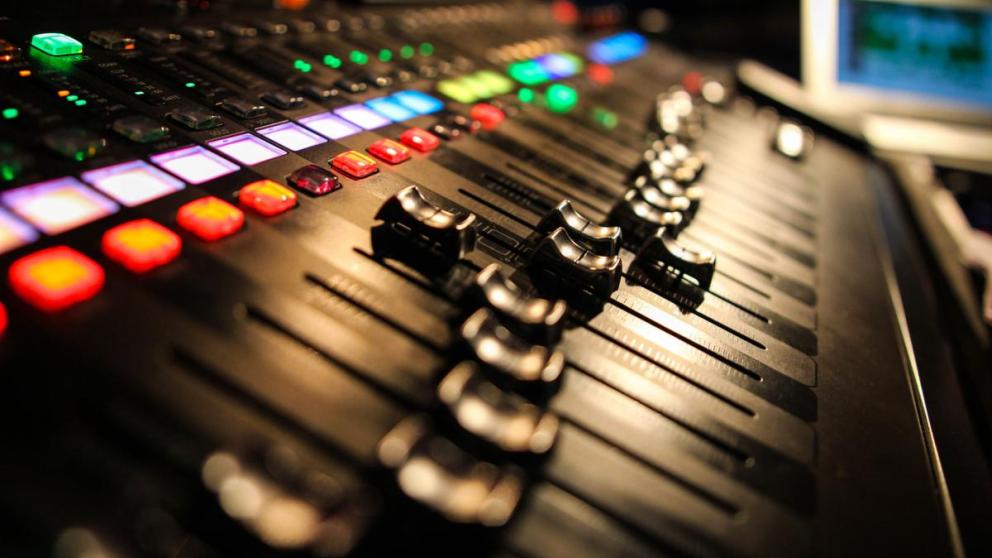
The world of audio engineering can seem complex, filled with technical jargon and unfamiliar equipment. But fear not, aspiring sonic sculptors! This guide tackles 20 common questions that unravel the mysteries of recording, mixing, and mastering audio. From the essential tools to the core concepts, we’ll shed light on the processes that bring your favorite music and soundscapes to life.

20 Common Audio Engineering Questions and Answers
- What is audio engineering?
Audio engineering is the art and science of recording, manipulating, and reproducing sound. It involves capturing sound using microphones, editing and mixing audio tracks, and processing sound to achieve a desired outcome. - What skills do I need to be an audio engineer?
Technical skills like using audio software and equipment are crucial. Additionally, a good ear for music, strong problem-solving skills, and an understanding of acoustics are essential. - What equipment do I need to start audio engineering?
A computer with audio editing software (DAW), a decent microphone, headphones, and a basic audio interface are a good starting point. - What is the difference between mixing and mastering?
Mixing involves balancing individual tracks, adding effects, and creating a cohesive overall sound. Mastering focuses on optimizing the final mix for different listening environments. - What is a DAW (Digital Audio Workstation)?
A DAW is a software program used for recording, editing, and mixing audio. Popular DAWs include Pro Tools, Logic Pro, Ableton Live, and FL Studio. - What are plugins?
Plugins are software tools used within a DAW to process audio in various ways. Examples include EQs, compressors, reverbs, and delays. - What is an audio interface?
An audio interface connects your microphones, instruments, and speakers to your computer, allowing you to record and playback audio digitally. - What is gain staging?
Gain staging is the process of setting appropriate levels throughout your recording chain – microphone gain, preamp gain, and DAW faders – to avoid distortion and unwanted noise. - What is a compressor?
A compressor reduces the dynamic range of an audio signal, making loud sounds quieter and quiet sounds louder, resulting in a more controlled and even sound. - What is an equalizer (EQ)?
An EQ allows you to boost or cut specific frequencies in an audio signal, shaping its tone and removing unwanted resonances. - What is reverb?
Reverb simulates the natural reflections of sound in a space, adding depth and ambience to your audio recordings. - What is delay?
Delay creates echoes of an audio signal, adding rhythmic and textural interest to your recordings. - What is a microphone preamp?
A microphone preamp boosts the weak signal from a microphone to a level suitable for recording in your DAW. - What is a monitor controller?
A monitor controller allows you to switch between different studio monitors and speakers, adjust volume levels, and mute/solo tracks for efficient mixing. - What is phantom power?
Phantom power is a +48v DC voltage supplied by a microphone preamp that certain condenser microphones require to operate. - What is a MIDI controller?
A MIDI controller is a physical device used to control virtual instruments and sound modules in your DAW by sending MIDI data (musical instrument digital interface). - What is sidechaining?
Sidechaining allows you to use one audio signal (sidechain) to control the volume of another signal (target) dynamically. This is commonly used to create a pumping effect with kick drums and bass guitars. - What is audio bit depth and sample rate?
Bit depth refers to the number of bits used to represent the amplitude of an audio signal, and sample rate refers to the number of times per second the signal is sampled. Higher values generally result in higher fidelity audio but also larger file sizes. - What is mastering loudness?
Mastering loudness refers to the overall volume level of a mastered track. While some aim for louder tracks, it’s crucial to maintain good audio quality and avoid clipping. - How can I learn more about audio engineering?
Numerous online resources, tutorials, and courses are available. Consider attending workshops, pursuing audio engineering degrees, or finding a mentor in the field. Remember, practice, experimentation, and training are key to developing your skills.
So, whether you’re a budding musician recording your first demo or an audio enthusiast wanting to delve deeper, this is just the beginning of your sonic journey. With dedication, practice, and the knowledge you’ve gained here, you’re well on your way to shaping your own audio masterpieces. Remember, the best way to learn is by doing, so experiment, explore the world of audio software and hardware, and most importantly, have fun creating!
Audio Engineer Interviews
Red Hot Chili Peppers Sound Engineer – Dave Rat 2016 Set up
Antony King – Front of House Engineer for Depeche Mode
Gavin Tempany – FOH Tame Impala, Mark Knopfler, Hans Zimmer, Kylie and Eskimo Joe
Analogue vs Digital, How to ‘Hear’ when Mixing with Andrew Scheps
Matthew Walsh FOH Audio Engineer War on Drugs
Bob Strakele Interview – FOH Audio Engineer Slipknot
Marc Carolan FOH Live Audio Engineer – Muse
Dave McDonald – FOH Engineer For Adele – Interview
How to Develop Your Ears for Sound Engineering and Production
